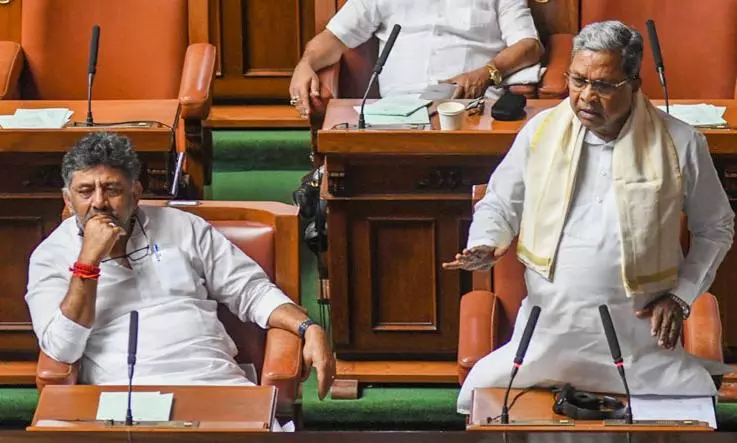
Bill against Anti-Conversion Act unlikely this time in Karnataka Assembly
text_fieldsBengaluru: Contrary to its previous cabinet decision, the Congress government in Karnataka announced that it has decided not to table a Bill aimed at effectively repealing the controversial Anti-Religious Conversion Act introduced by the previous BJP government in the ongoing Budget sessions.
Reports suggested that the decision to keep in abeyance all controversial laws enacted by the previous BJP government, including the anti-conversion law and the ban on cattle slaughter, is intended to prevent the BJP from capitalizing on these issues and gaining political advantage in the lead-up to the upcoming Lok Sabha elections scheduled for next year.
Reports also suggested that a draft Bill, already prepared and scheduled for printing in regard to the revocation of the Ant-conversion Act, was withdrawn by the government.
The Karnataka Protection of Right to Freedom of Religion Act, 2022, commonly referred to as the anti-conversion law, was passed in September 2022 amidst strong opposition from minority groups and political parties.
The legislation places restrictions on religious conversions and regulates interfaith marriages, seeking to address right-wing concerns over "love jihad" by curbing conversions through misrepresentation, force, fraud, coercion, allurement, or marriage.
In addition to the anti-conversion law, the Karnataka Prevention of Slaughter and Preservation of Cattle Bill, 2020, which imposes a complete ban on cattle slaughter, is yet to undergo revision by the Congress government.
The ruling party is currently facing pressure from farmer groups to amend the cattle slaughter law, as it had promised in its election manifesto to address concerns that adversely affect farmers in the state.
However, during the ongoing legislative session, the Congress government has decided to focus solely on amending a farm produce marketing law passed by the previous BJP government.
This law allows the sale of agricultural products outside the Agricultural Produce Market Committee (APMC) markets. By addressing this issue, Congress hopes to fulfil one of its commitments while temporarily delaying action on other controversial laws.






















